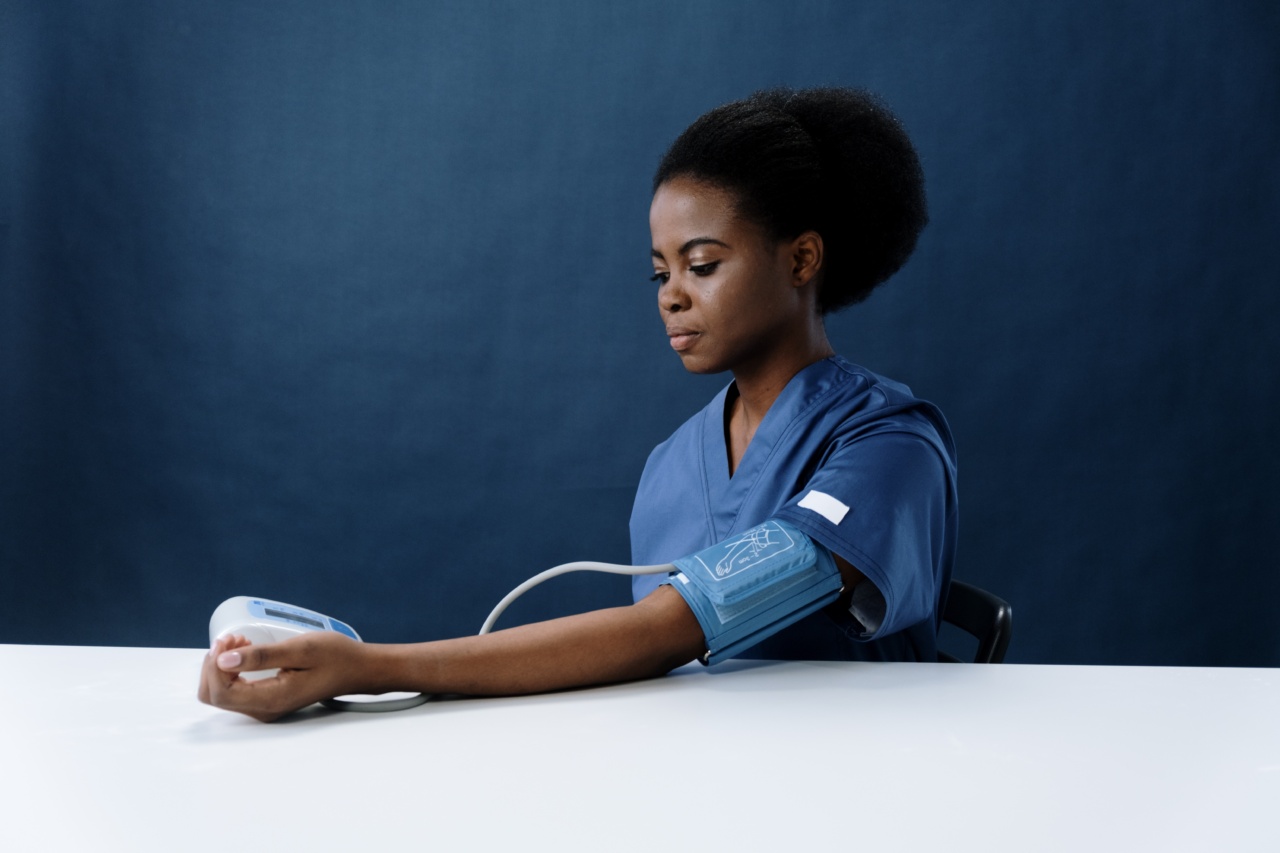Hypertension, or high blood pressure, is a prevalent condition that affects more than one billion adults all over the world.
It occurs when the force of blood against the walls of the arteries is too high, which can cause a myriad of long-term health problems if left unchecked. While most people realize that hypertension can lead to heart disease, stroke, and kidney damage, many are unaware of its impact on eyesight.
This article will explore the correlation between hypertension and vision and what you can do to protect your eyesight and overall health.
The link between hypertension and eyesight
Hypertension can damage the blood vessels throughout the body, including the tiny blood vessels in the eyes. When these vessels are damaged, they can cause various eye complications. Here are some examples:.
Retinopathy
Retinopathy is the medical term for damage to the retina, the part of the eye that converts light into signals that the brain interprets as images.
Uncontrolled hypertension can cause the blood vessels in the retina to become blocked, leaky, or even burst, leading to retinal damage. Some of the early signs of this condition include blurry vision, reduced color vision, and dark spots on the retina. Severe cases of retinopathy can lead to total blindness.
Hypertensive choroidopathy
Hypertensive choroidopathy is a condition that occurs when the blood vessels beneath the choroid, the layer of blood vessels and connective tissue in the middle of the eye, are damaged by hypertension.
This condition can cause fluid buildup in the eye, leading to vision changes and distortions. People with hypertensive choroidopathy may experience vision loss, blurry vision, or see crooked lines or distorted shapes.
Optic neuropathy
Optic neuropathy is a condition that affects the optic nerve, which transmits visual signals from the eye to the brain.
Hypertension can cause the blood vessels supplying the optic nerve to constrict or become damaged, leading to poor blood flow and decreased vision. Symptoms include eye pain, loss of visual acuity, and abnormal visual field testing. Although rare, acute optic neuropathy can cause sudden vision loss that can be severe and irreversible.
What can you do to protect your vision?
The good news is that protecting your vision from hypertension is relatively straightforward. The best way to maintain good eye health is to manage your blood pressure through lifestyle modification, medication, or a combination of both.
Here are some tips to consider:.
Get regular eye exams
Regular eye exams are essential to identify any potential eye problems early, especially for people diagnosed with hypertension.
An eye doctor can detect any early signs of retinopathy or hypertensive choroidopathy and recommend an appropriate treatment plan. Early detection and treatment can prevent vision loss and reduce the risk of permanent damage.
Lower your blood pressure
Keeping your blood pressure under control is the most important step to prevent hypertension from damaging your eyes. Your healthcare provider may recommend medications, such as diuretics or ACE inhibitors, to keep your blood pressure in check.
Lifestyle changes, including a healthy diet, regular exercise, limiting salt intake, and reducing alcohol intake, can also help lower hypertension.
Quit smoking
Smoking can damage the blood vessels throughout your body, including your eyes. Studies have linked smoking to an increased risk of developing retinopathy and other eye problems. Quitting smoking can help protect your vision and overall health.
Reduce stress
Stress can increase blood pressure, which can cause further damage to your blood vessels. Engaging in stress-reducing activities, such as meditation, yoga, or deep breathing exercises, can help lower your blood pressure and protect your eyesight.
Eat a healthy diet
A healthy, balanced diet that is rich in fruits, vegetables, whole grains, and lean protein can help lower blood pressure and reduce your risk of eye problems.
Foods that are high in antioxidants, such as blueberries, spinach, and almonds, can help protect your eyes from damage.
Conclusion
Hypertension can have a significant impact on vision and eye health. Damage to the blood vessels in the eyes can lead to conditions such as retinopathy, hypertensive choroidopathy, or optic neuropathy.
The good news is that these conditions can be prevented with early detection, regular eye exams, and proper blood pressure management. By adopting healthy lifestyle habits, including eating a healthy diet, reducing stress, and quitting smoking, you can maintain good eye health and reduce the risk of hypertension-related complications.




























